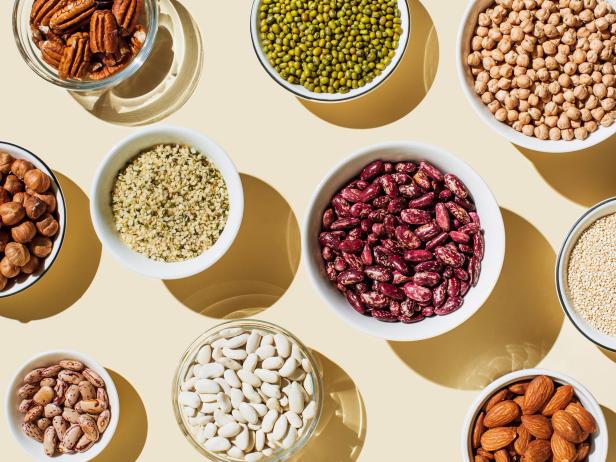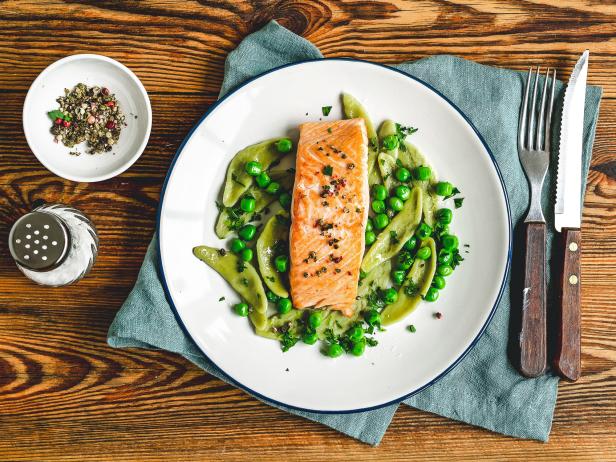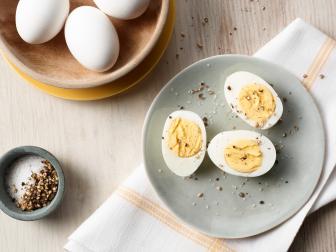4 Nutrients You Need During Pregnancy
These nutrients are required to support your body’s increased needs. Focusing on food sources and supplementing as necessary is important to ensure a healthy pregnancy and baby.

Tanja Ivanova/Getty Images
Pregnancy is a time when a person’s nutrient needs drastically go up. Specific nutrients are necessary for the optimal development of an embryo, growing a healthy baby and reducing pregnancy-related symptoms and complications. Eating a varied, nourishing and well-balanced diet is key. This will help meet your nutritional needs, fill up your nutrient stores and support a healthy pregnancy, labor, delivery and postpartum. Your body during pregnancy is like a bank account where withdrawals are high (and even higher when breastfeeding), so it’s important to prioritize your nutrition during this season of life.
Below are four nutrients that are especially important for pregnant people to focus on. These nutrients may not be found in optimal amounts or forms in your prenatal supplement so it’s important to add foods rich in these nutrients, and supplement as necessary. Consult with a registered dietitian for specific nutrition recommendations.

Aniko Hobel/Getty Images
Folate
Folate, also called vitamin B9, is an essential nutrient known to help prevent neural tube defects, brain and spinal cord injuries in babies. The neural tube forms before a person may even know that they are pregnant, so it’s important to take a prenatal vitamin that contains at least 400 micrograms of folic acid, or preferably the active form of folate at least three months before pregnancy. Folic acid is the synthetic form of folate and is the form found in most one-a-day prenatal vitamins. However, up to 60 percent of women have a genetic mutation called MTHFR where the body is unable to convert folic acid to the active form of folate needed for the body. This can put women at risk of not meeting their folate needs. When possible, choose a prenatal vitamin with the active form of folate. Food sources of folate are leafy greens, beans, peas and nuts.
Vitamin D
Vitamin D is often known as the sunshine vitamin because it’s the only vitamin that you make in the body from sun exposure. It accounts for the majority of the vitamin D obtained.
Vitamin D plays an important role in pregnancy. A deficiency can increase risk for preeclampsia, low birth weight, poor bone development in baby and gestational diabetes. Vitamin D deficiency in pregnant people ranges significantly so it’s important to be screened for vitamin D and supplement accordingly. People who have naturally darker skin, live in regions far from the equator or where sun exposure is limited during winter, or those that wear protective clothing, can be at a greater risk for vitamin D deficiency. All pregnant people should supplement with at least 600 IU/day. However, research suggests that supplementing with higher doses of up to 4000 IU/day of vitamin D is linked to better maternal and infant outcomes and lower risk for pregnancy complications. When supplementing, choose the form vitamin D3 which is more effective at raising vitamin D levels and take with a meal to ensure it absorbs well. Food sources of vitamin D include fatty fish, egg yolks, liver and fortified orange juice.
Choline
Choline is a relative of the B vitamins that, like folate, plays an essential role in preventing neural tube defects and supports healthy brain development. It’s estimated that 94 percent of women do not meet the recommended intake of 450 mg of choline per day. The highest food sources of choline are egg yolks and liver. Consuming two eggs per day provides half of your choline’s needs. Most one-a-day prenatal vitamins do not contain choline (or in very limited amounts), so a choline supplement may be needed to meet your needs depending on your food intake.
Try These Egg Recipes
Omega 3 Fats
Omega 3 fats, specifically DHA, is required for a baby’s rapid brain and eye development during pregnancy. Aim for at least 300 mg of DHA per day although higher doses may be beneficial. Consuming two to three servings of cold water, fatty fish each week such as salmon, sardines or trout, will meet your omega-3 requirements. However, if you are unable to eat fish, supplementing with a high-quality fish oil or cod liver oil is recommended. An algae-based supplement can be a plant source for DHA. Not all prenatal vitamins contain omega 3 so it’s important to take a close look at labels.
*This article was written and/or reviewed by an independent registered dietitian nutritionist.
Related Content:

































